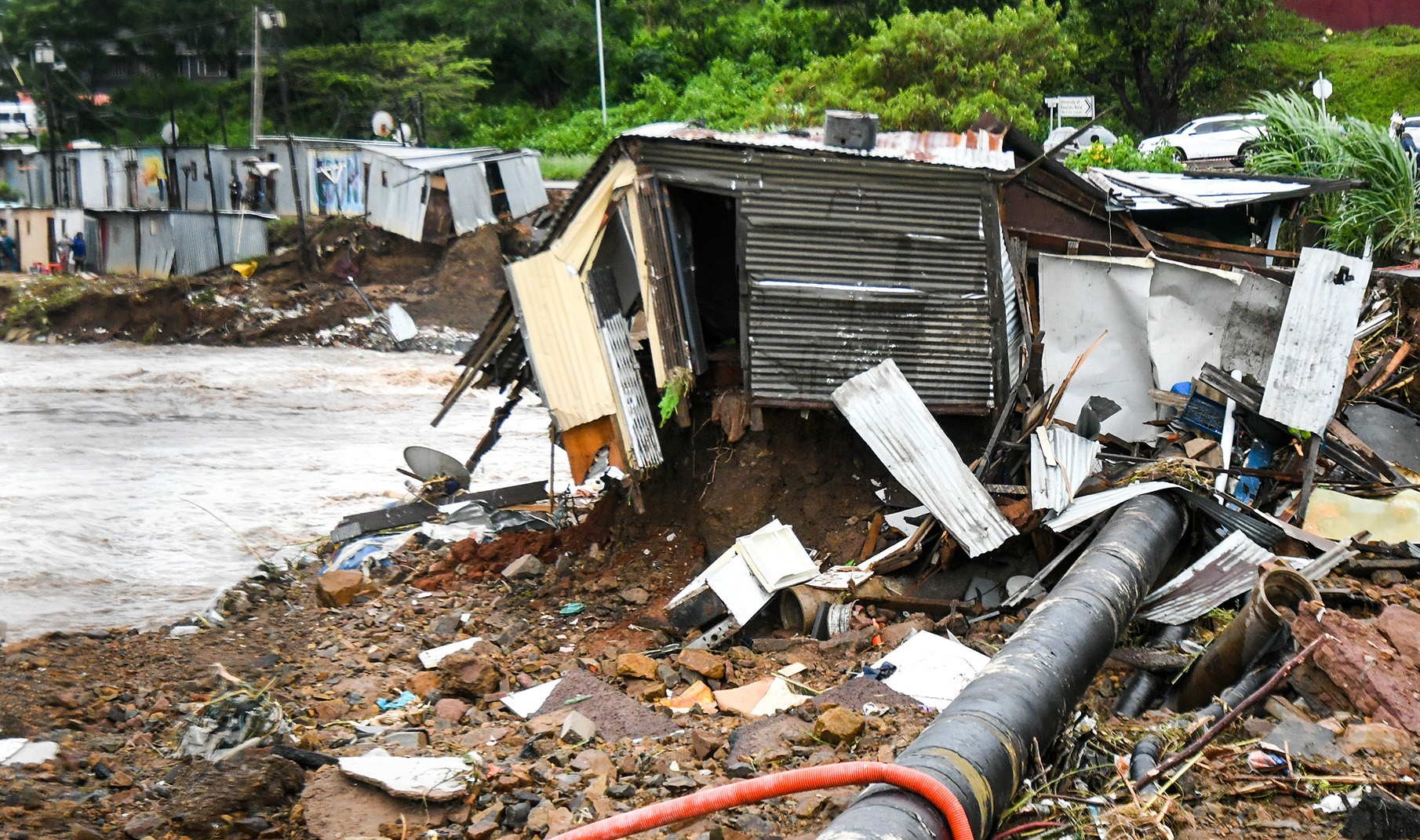The KZN Province's response to resettle displaced victims of floods has met with some resistance by local residents.
Two weeks ago Kwa Zulu Natal MEC for Transport and Human Settlements Sibusiso Duma said residents feared the construction of low-income residential units would result in a decline in property market values of the existing homes, making it difficult for current residents to sell their homes and move elsewhere.
The site where flood victims are being moved to is Shallcross, a collective name for several smaller suburbs located on the rolling hills southwest of Durban, primarily comprising Northdene, Malvern and Escombe. The suburb is regarded as middle class with mostly large, spacious family homes that are close to all business districts. This is where concerns from the community over property value come in.
Spokesperson for the KZN MEC for Human Settlements, Ndabezinhle Sibiya, said meetings with Shallcross residents, the ratepayers association and other key stakeholders would be held to ensure a smooth process.
“These meetings, which must take place within the next two weeks, are aimed at ensuring that no community is mobilised to resist the construction of houses for the victims who are currently housed in flats, hotels and other temporary shelters.
Read more: Relocated to ‘unbearable’ shelters, 2022 KZN flood victims now fear eviction
“We have stated on various platforms that no challenge is above the collective wisdom. Accordingly, we believe that we must engage with each other if there are any misunderstandings or concerns from each community member,” said Duma.
In a statement released on Monday, 3 March, the KZN human settlements department said, “We reiterate our position that we will firmly resist any attempt to reintroduce the Group Areas Act through the back door. In the past, there were certain racial groups that were prevented from living in certain areas. The “Not-in-My Backyard Syndrome” belongs to an apartheid past, not to a democratic South Africa.”
The department said it would work with eThekwini mayor Cyril Xaba to use the Proactive Land Release Strategy, which was aimed at ensuring that immovable municipal properties, such as the land, were released for the construction of houses for vulnerable members of society.
Shallcross community leader Marcus Richards disagreed with the reasons for resistance by residents expressed by Duma and the department, saying that some community members objected to the development because Shallcross was already struggling with the delivery of basic services. He said their objections had never had racial undertones.
Concerns included damaged roads, morning traffic, lack of police and ambulance services, a neglected clinic, no streetlights, crime, an unused pool and stadiums in disarray.
Richards said the consultation process was not widespread or thorough enough.
The leader of the local ratepayers’ association, Sash Singh, told Daily Maverick: “As a founder of the Queensburgh Ratepayers' Association and former chairperson, I was actively involved in assisting the Shallcross community with finding a solution with this issue that quickly became a problem with the residents in the area.
“My suggestion initially was to turn the problem into something that can work to better the community. Being humane goes beyond just food parcels, it’s about creating lasting, positive change. By transforming a low-cost housing development into a secure, well-maintained area, we can improve safety and provide local jobs. This approach not only strengthens the community but also eases pressure on public services. Let’s work together to turn this challenge into an opportunity for growth and unity, benefiting everyone.”
On Monday, March 3, Duma, outlined the province’s response to floods that have displaced thousands.
Daily Maverick joined his visits to Shallcross Ward 17, under eThekwini Municipality, to assess the land set aside to build 85 permanent houses for the victims of the April 2022 floods and those who had been recently affected by floods. The department identified 12 portions of land owned by the state across the eThekwini Metro which could accommodate 4,458 residential sites.
 Shacks washed away at the informal settlement between M19 and Quarry Road in Durban on 12 April 2022. (Photo: Gallo Images / Darren Stewart)
Shacks washed away at the informal settlement between M19 and Quarry Road in Durban on 12 April 2022. (Photo: Gallo Images / Darren Stewart)
Duma emphasised that the department used only land that belonged to it due to a limited budget.
“We decided to build houses on state-owned land. We felt that this would not require lengthy negotiations and incur the high costs of land acquisition.”
Duma said pre-screening of these properties had informed the decision to use them for housing development.
“We also wish to indicate that the department utilised the appointment of a team of professionals to do detailed studies of these properties, package town planning applications, and submit them to the local authority for review and approval in accordance with the Spatial Planning and Land Use Management Act. We undertook an environmental impact assessment in accordance with the National Environmental Management Act of South Africa (1998),” said Duma.
Incoming community
In previous engagements with flood victims living in shelters, the victims raised concerns that communities where they had been temporarily relocated did not accept them.
Daily Maverick spoke to flood victim and activist Sibongile Mkhize about the MEC’s site visit. She said they too were concerned about being victims of crime and victimisation in the new communities.
“We are also worried about being victimised by the community and being targeted for crimes such as burglary and others. We hope the local councillor will engage their community and make sure they are aware and welcome us.
“This community of flood victims is against crime and we have created systems to stay safe such as having whistles to alert if anyone is being attacked. So as happy as we are, we really wish to be able to visit these sites as well, so we can also see that we will not become victims of flooding, cyclones and climate change,” said Mkhize
“We are very happy that there is progress … it is so sad that more of our community members are losing their loved ones to floods. Our concerns are also around if the new land parcels chosen for this – have they been inspected [to ensure] they are not flood-prone areas?”
Mkhize lost her home in uMlazi in 2022 and has become a voice for flood victims who live in unfavourable conditions in temporary shelters.
It appears that a fair number of the flood victims are working people, including Mkhize, who just don’t have enough resources to rebuild houses, forcing them to stay in the shelters for more than two years. Many are either elderly, or children within big family units.
Read more: KZN flooding: 6 dead after heavy rain south of Durban
Contractors have been appointed to put services in place and build top structures in three of seven rezoned land parcels. One site is in Copesville, Pietermaritzburg.
“We cannot wait any longer to start the construction of houses for vulnerable members of society. Any delay is not only prolonging their suffering, but a violation of their human rights and also the Constitution,” said Duma. DM




 Shacks washed away at the informal settlement between M19 and Quarry Road in Durban on 12 April 2022. (Photo: Gallo Images / Darren Stewart)
Shacks washed away at the informal settlement between M19 and Quarry Road in Durban on 12 April 2022. (Photo: Gallo Images / Darren Stewart) 